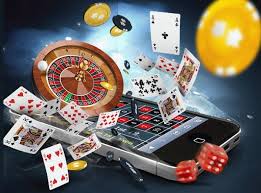The Psychology of Playing Slots 8

The Psychology of Playing Slots
Slot machines are not just simple games of chance; they are complex psychological experiences designed to engage players in ways that go beyond mere gambling. The allure of spinning reels, the sound of coins clinking, and the visual feast presented on modern machines all serve to create an immersive atmosphere. This article delves into the various psychological factors that drive people to play slots, the emotions involved, and how understanding these can help in making informed decisions about gambling. For those looking to explore the options available, you can visit The Psychology of Playing Slots in Bangladesh jaya9 login Bangladesh.
Understanding the Appeal of Slots
At the heart of the popularity of slot machines is their accessibility. Unlike table games that typically require a certain level of skill or strategy, slots are straightforward. Players simply insert their money and pull the lever (or press a button). This simplicity is appealing, especially for newcomers who may feel intimidated by more complex casino games.
Furthermore, the bright lights, captivating sounds, and often engaging themes of slot machines create a sensory overload that can hijack the brain’s reward system. The combination of these elements works in unison to keep players entertained and engaged, often leading them to play for extended periods.
Reward Systems and Neurochemistry
The brain reacts to gambling and slots in particular by releasing dopamine, a neurotransmitter associated with pleasure and reward. When players win, even small amounts, their brains interpret this as a rewarding experience, which reinforces the behavior of playing. This is why many players continue to come back for more: they are chasing the excitement that comes with a potential win.
The near-miss phenomenon is particularly interesting. For instance, if a player spins the reels and lands two matching symbols, with a third just barely missing, the brain can interpret this as a valid success. This near-miss can trigger a dopamine release similar to an actual win, which keeps players engaged in hopes of achieving that elusive victory.

The Role of Escapism
Another psychological aspect of playing slots is the concept of escapism. Slot machines offer players an opportunity to forget about their everyday stresses and immerse themselves in a world of fantasy and excitement. This ability to escape from reality can be particularly appealing in today’s fast-paced and often overwhelming environment.
Players may find themselves drawn to games with themes that resonate with them personally, whether it’s adventures with treasure hunters, whimsical cartoon characters, or nostalgic references to childhood. This emotional connection to the themes can enhance the gaming experience, making it even more enjoyable, and further reinforcing the desire to play.
Social Interaction and Competition
While slot machines may seem like solitary activities, there is a social component that many players enjoy. In many casinos, slot players are often in close proximity to one another, and the communal environment can foster a sense of camaraderie among players. This is particularly true in areas where players can share reactions to wins and losses or even cheer each other on during bonus rounds.
Moreover, many online slots offer social features, allowing players to connect with friends, share achievements, and even compete against one another. Social interactions can significantly enhance the gaming experience and contribute to the overall desire to play.
Risk and Reward: Balancing Odds
The nature of gambling inherently involves risk, and this risk is a key part of what makes playing slots appealing. The thrill of potentially winning large sums of money gives players a sense of excitement that is hard to replicate in other activities. However, it is essential for players to understand the odds associated with slot machines.

Every slot machine has a Return to Player (RTP) percentage indicating the average amount of money the game pays back to players over time. The majority of players may not fully grasp these statistics, often leading them to misjudge their chances of winning. Responsible gambling includes recognizing these odds and understanding the likelihood of winning versus losing.
The Impact of Advertisements and Promotions
The casino industry employs various marketing strategies to entice players, including bonuses, free spins, and promotional events. These tactics can play a role in shaping players’ perceptions and encourage them to try new games or spend more time on their favorite ones.
Many players may feel compelled to act on these promotions, believing that they can increase their chances of winning or provide an opportunity to experience a game they wouldn’t normally play. While such promotions can be enticing, they can also lead to overconfidence and impulsive gambling behavior.
The Importance of Self-awareness
Understanding the psychological factors behind playing slots is essential not only for enjoyment but also for responsible gambling. Players should take the time to reflect on their motivations for playing and assess whether they are gambling for fun or if it has become an unhealthy escape from reality.
Setting budget limits, taking breaks, and practicing self-control are vital aspects of maintaining a healthy relationship with gambling. Awareness of the emotional highs and lows is critical in making informed choices about when to play and when to walk away.
Conclusion
The psychology of playing slots is a complex interplay of excitement, reward, and emotional connection. Understanding the various psychological factors at play can help players navigate their experiences wisely and responsibly. As with any form of entertainment, it is important to approach slot machines with clarity and awareness, recognizing both the fun and the risks involved.
